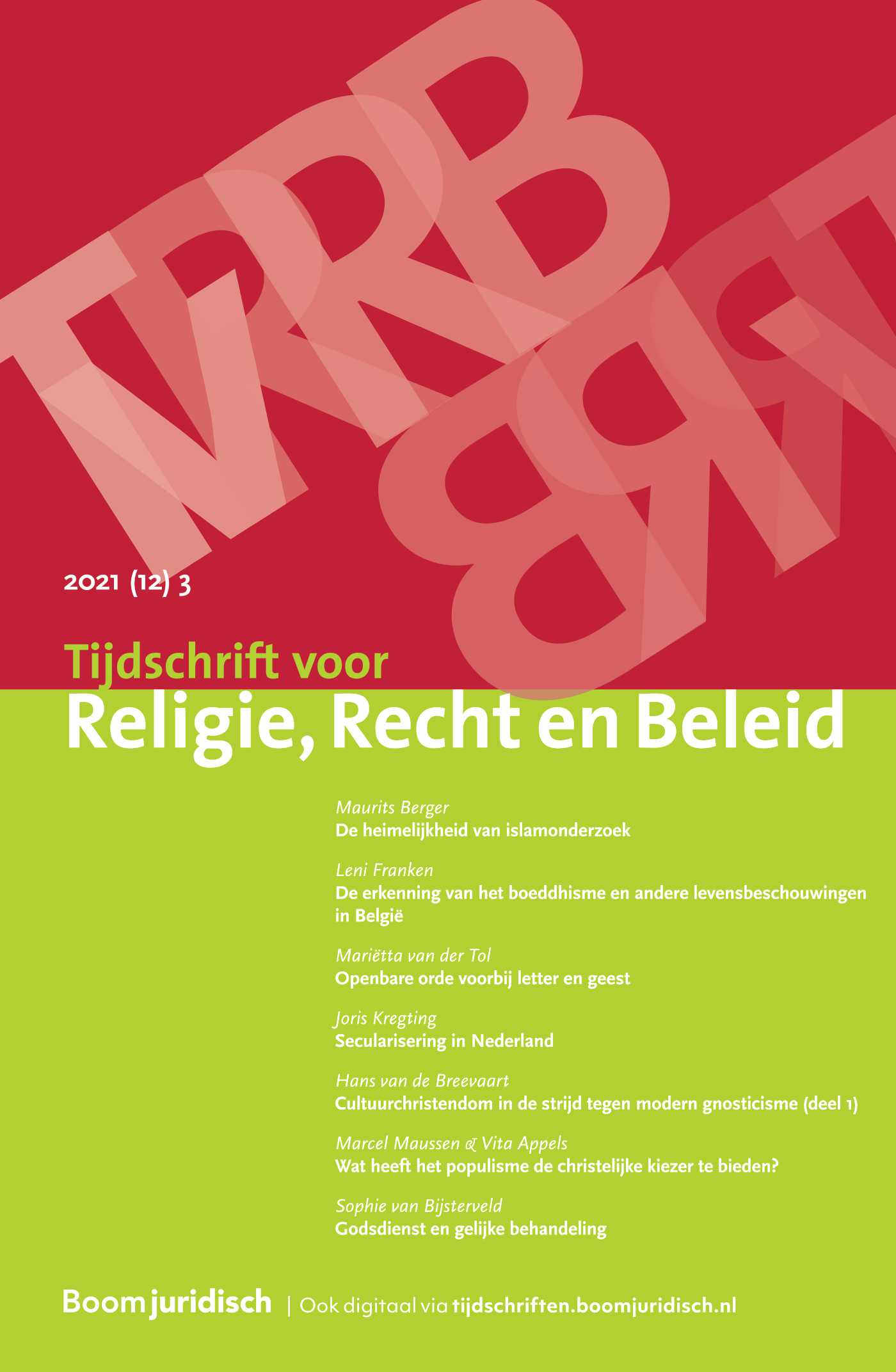|
According to the tenets of Judaism and Islam, animals must be slaughtered without any form of stunning. Stunning is often required to alleviate an animal’s suffering when it is killed. Legislation that requires stunning without exempting ritual slaughter leads to an interference with religious freedom that calls for closer justification. With reference to recent legislation in Denmark, this contribution analyses whether blanket stunning can be said to violate the right to freedom of religion in article 9 of the ECHR. |


Tijdschrift voor Religie, Recht en Beleid
Meer op het gebied van Algemeen
Over dit tijdschriftMeld u zich hier aan voor de attendering op dit tijdschrift zodat u direct een mail ontvangt als er een nieuw digitaal nummer is verschenen en u de artikelen online kunt lezen.
| Redactioneel |
|
| Auteurs | Khadija Kadrouch-Outmany |
| Artikel |
|
| Auteurs | Maurits Berger en Masha Rademakers |
| Auteursinformatie |
| Artikel |
|
| Auteurs | Maurits Berger |
| Auteursinformatie |
| Artikel |
|
| Auteurs | Gerard-René de Groot en Olivier Vonk |
| Auteursinformatie |
| Artikel |
|
| Trefwoorden | Ritueel slachten, EVRM, godsdienstvrijheid, dierenwelzijn |
| Auteurs | Gerhard van der Schyff |
| SamenvattingAuteursinformatie |
| Artikel |
|
| Trefwoorden | Geestelijke verzorging, justitie, scheiding van kerk en staat, godsdienstvrijheid |
| Auteurs | Dr. mr. Ryan van Eijk |
| SamenvattingAuteursinformatie |
|
Ryan van Eijk reacts on a previously in this periodical published article on prison chaplaincy in the Netherlands. This article argued that the growing religious individualisation as well as a political rethinking of the role of religions institutions ask for system adaptations and that the denominational approach is subject to discussion. Van Eijk criticizes this thesis and presents arguments and reasons why the current model is a good one. According to Van Eijk prison chaplaincy cannot and should not be organized only from the right of the detainee, for also aspects like the task of the government and denominational organizations and the detention context have to be considered. |
| Artikel |
|
| Trefwoorden | crematorium, rituelen, rouw, secularisering, beleid |
| Auteurs | Martin J.M. Hoondert |
| SamenvattingAuteursinformatie |
|
Crematoria in the Netherlands develop from utility buildings to places where attention is paid to death rituals, commemoration and mourning. This trend is clearly visible in policy and subsequent activities of the Tilburg Crematorium (the Netherlands). This article describes this policy and positions it in the broader context of cultural and religious developments in the Netherlands. |
| Artikel |
|
| Trefwoorden | godsdienstvrijheid, EVRM, staatsrecht, rechtsfilosofie |
| Auteurs | Mr. drs. Jaco van den Brink |
| SamenvattingAuteursinformatie |
|
Recently the European Court of Human Rights issued its Grand Chamber judgment in the case of Fernández Martínez versus Spain. This case shows the importance of a sound and justified approach of the collective dimension of religious freedom. It is argued that a perspective from individual autonomy falls short. Instead, an account is proposed which reflects on the nature of religious collectivities, and on the proper place of the state within society. In some aspects of the said judgment, elements of such an approach can be found, while other aspects show more affinity with a contrary approach. The judgment therefore suffers from incoherence, as it is argued. |

 Aflevering 3
Aflevering 3